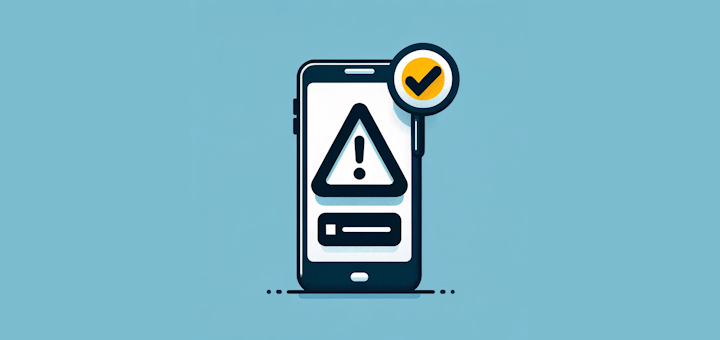How to know if a Text Message is a Scam?

👉 The Essentials in 3 Points…
- The sender is not in your contacts but may seem familiar.
- The message urges you to click on a link or continue the conversation elsewhere.
- Reading the SMS triggers a strong emotion (fear, curiosity,…)
Text messages that look alike
Fraudulent text messages generally all have the same goal: to steal your personal information and/or your money.
An Unknown but potentially familiar sender
Be cautious if you receive a message from an unknown number, especially if it claims to be from an organization (telecom provider, administration…) or even someone you know. Scammers often use this technique to gain your trust. This is often referred to as “smishing”, which is the smartphone version of the well-known email phishing.
Suspicious links and invitations in Text Messages
Scam texts often encourage you to click on a link or continue the conversation elsewhere (like on a social network, for example). This practice is explained by the fact that scammers sometimes use hacked and/or temporary numbers… They are not looking to engage directly in your phone’s messaging.
Playing on Emotions for Better Scamming
The messages often aim to provoke an emotional reaction, such as urgency, fear, or curiosity. They use these emotions to push you to act quickly, without thinking. Always take time to step back and verify the information before reacting to such messages.
Current Text Message Scams
Some examples of text message scams that have been popular since early 2024:




✔ To Go Further…
- If you have received a scam text message, report it on a community platform to inform as many people as possible.
- Avoid clicking on links. If you do, keep in mind that the site you land on may be fake, even if it looks like the official version.
- Be extra cautious with the use of shortened links that hide the real name of the website.
- When in doubt, type the sender’s number or the message text into a search engine. This way, you can see if others are talking about a scam.
❓ What if You’ve Fallen into the Trap?
- If you have entered your banking details, inform your bank immediately so they can take appropriate measures.
- If you have shared passwords, change them immediately through the official site.
- If you have transmitted personal data, set up internet surveillance.

